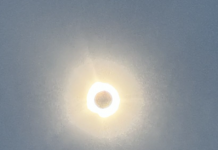I was about to say I never thought the afterlife would be like this, but the truth is, I never thought about it, period.
I was too busy running my storage and supply operation. My life was all capacity analysis and lipid appraisal and throughput calibration. Are there deep-fried cheese curds upstream? Mobilize! What did I know of philosophy, theology, or cosmogony, not to mention music, sports, humor, gossip, yearning, rapture, awe? One minute you’re hanging, just as you always have, beneath the big, plush red-velvet awning of the liver, and the next minute you’re here. Which is to say, elsewhere. In a place you can’t name. Do you retain a physical presence, a beingness, a quiddity beyond spirit or thought? Hard to say. But you do spend a lot of time remembering.
There’s a self-styled comedian here by the name of Bob—he likes to refer to himself as a “recovering tonsil”—who calls this place the Island of Misfit Organs. I get the reference, but I don’t appreciate the joke. I was on the job for 50 years, devoting myself to the containment and timely dispersal of bile. (Note: There’s no symbolic or pejorative connotation to the word bile here. I refer simply to the fat-dissolving digestive liqueur.) Okay, so I wasn’t a heart or a kidney or an ovary; okay, so none of us who’ve ended up here were organs of such exalted rank. Some weren’t even organs, technically. So what?
Here’s how things seem to work. As long as you remain part of your host body, you’re a creature of tissue, and as such you dumbly absorb things: pesticides and fertilizers and heavy metals, of course, but also sounds, smells, tastes, textures, moods, dreams, and weather. Only after separation do you realize that you have been a kind of recording secretary for your host’s existence. I know an ex-dollop of cellulite named Blanche whose tales of the early days of the Ice Follies I could listen to all day. Blanche has a theory that every cell of every living body is home to at least one memory, which is why it’s so hard for most people to lose weight.
You remember recent fireworks first. In my case, it was the ride to the hospital on the night I cramped up and made my host think he was having a heart attack. It wasn’t the first time he’d been in an ambulance, but he thought it might be the last. I can see the two paramedics, smell their laundry soap and aftershave, practically trace the incised lettering on their plastic name badges. I feel the IV needle penetrating the skin and the venous wall; it makes an instantaneous ache, as if it’s been there for hours or days rather than seconds. The EMT named Stan says, “Open your mouth and lift your tongue,” and I taste the bronze-flavored mist of nitroglycerin that issues from the aerosol tube in his hand. That flavor colors the light that flares through the ambulance windows as we roll and corner and jounce, colors the fears and observations that bloom in the back of this glorified truck: Why didn’t I buy more life insurance? and Why did this have to happen on a Saturday night? I hate the emergency room on a Saturday night and At least we put on a good show for the neighbors and Oh, Mama, can this really be the end?
I was removed a few weeks later, laparoscopically, in about the time it takes to get an oil change. The beautiful stone I had been making, my precious crystal of bile salts and trace pigments and clarified cholesterol, the work of my life, was my undoing. Thus began my acquaintance with Bob and Blanche and Delbert and all the others—adenoids, corneas, knees, hips, lengths of intestine, slivers of nose cartilage—millions of them, unwanted, worn out, expendable. Thus I embarked on my time as a conduit of memory and perception.
Now everything that has happened happens again in an infinite present tense. I ride a seesaw, climb a tree, hit a baseball, fire a shotgun, drop a clutch, plummet from a high-dive, kiss Tammy Pfenster beneath an oak tree in a vacant lot as the weight of a billion galaxies holds the dusk at bay. I cradle my first son as I am cradled by my parents and grandparents, as identical yet entirely different beams of sunlight fall on half-a-dozen kitchen floors, as my second son sleeps and stirs and shimmies in the compact universe of his mother’s body. Martin Luther and Humphrey Bogart and Hugh Hefner and John Lennon and Martin Luther King Jr. tell me how to live. I have a job picking grapes in a French vineyard, sorting empty pop bottles in a sweltering, wasp-filled tin shed behind the SuperValu, teaching college undergraduates to write poems that don’t necessarily rhyme, thinking up humorous T-shirt slogans (“Veni, vidi, vegi: I came, I saw, I had a salad”), selling PBS videos via catalog to people who could get them much cheaper on Amazon.com, editing magazines, delivering newspapers, washing dishes, wrapping deceased bodies in muslin sheets and sliding them into refrigerators in the University of Minnesota hospital morgue. I am exhilarated by mountains, books, rain, baseball, corn-on-the-cob, extra-pale ale, movies, voices, animals, fire. This is all just the tip of the proverbial iceberg, and it’s heady stuff for a so-called nonessential organ.
“You ought to watch that exhilaration business,” says Delbert, an erstwhile appendix—not that it matters what any of us once was. “Don’t get too attached.”
“Why not?”
“It won’t last,” he says. “When you first get here, the surf of memories sloshes through you; you’re like a kelp-bed of consciousness. But there’s a filtration process. You can’t feel it yet, but it’s there. Over time, you filter, filter, filter until at last you’re a single moment. Eventually, I figure, that ends too. For Tonsil Bob, I predict it’s going to be his sixth birthday party, the instant when his old man shows up dressed as a clown. For me, I’m pretty sure it’s going to be the second hour of my first hangover. For Blanche—”
But I already know what it will be for Blanche, because it’s all she talks about anymore: an overnight ride on the Ice Follies bus, dead of winter, Minneapolis to Chicago. Blanche curls in her seat under an Army-surplus blanket, leg-weary from skating (And such legs! as she’ll tell you. Not a pinch of cellulite then!), the bus full of blue 1950s cigarette air and the voices of bandy-legged barrel jumpers telling dirty jokes. She dozes, and wakes at three in the morning (So many stars!) to find she’s got a seatmate. It’s Shirley, one of the new Folliettes, 18 years old, smelling of Lustre-Creme Shampoo and Wrigley’s Spearmint gum and homesickness. Shirley has crawled in next to Blanche, trusting her above everyone else on the bus, and fallen asleep holding Blanche’s right wrist in her two little lonely hands. Blanche rests her forehead on the frigid window glass, feels the bus’s diesel motion in her hollow ice-dancer’s bones, and lets herself be carried along, wide awake and contentedly thoughtless, her eyes on the crystalline heavens.
All of us, misfits or otherwise, should be so lucky.
Contributing editor Jeff Johnson would like to thank anesthesia and painkillers for their contributions to this month’s column.







